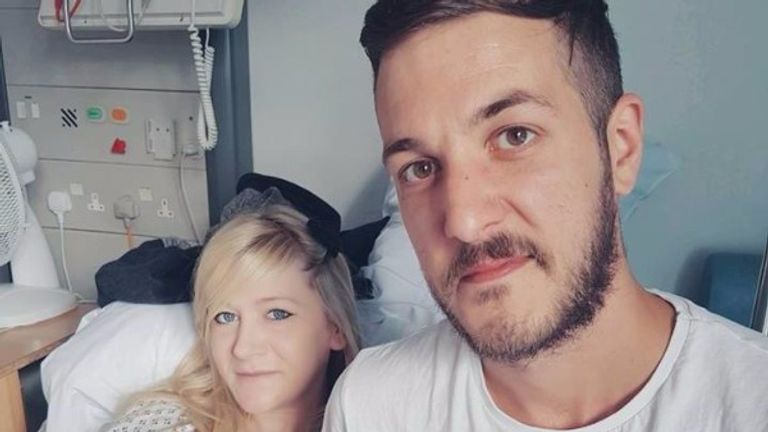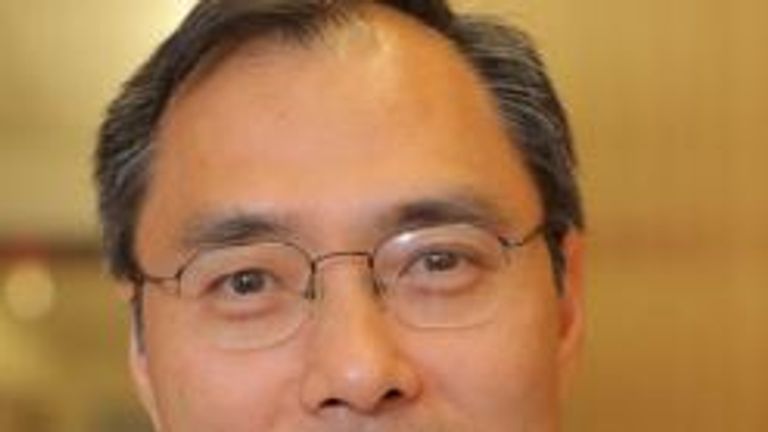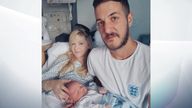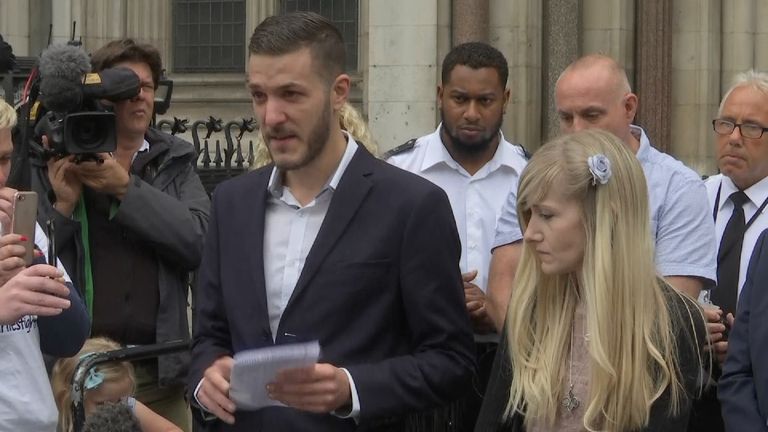Charlie Gard case has a lot to teach us
The legal wrangling over Charlie Gard's right to experimental treatment in the US played out over months in the courts.
Monday 24 July 2017 21:26, UK
Charlie Gard will not live to see his first birthday on 4 August, his mother told the High Court.
But, added Connie Yates proudly, he has touched more people in his 11 months than many people do in a lifetime.
His case has also been much misunderstood.
As Mr Justice Francis said in court: "The world of social media doubtless has very many benefits but one of its pitfalls… is that when cases such as this go viral, the watching world feels entitled to express opinions, whether or not they are evidence-based."
Connie Yates and her partner Chris Gard will always believe that experimental nucleoside treatment could have saved their son.
"Had Charlie been given the treatment sooner," she said in court, "he would have had the potential to be a normal, healthy little boy."
Not so, said Great Ormond Street Hospital for Children.
From the moment of Charlie's diagnosis, his prognosis was bleak.
No human or animal with Charlie's condition had received nucleoside treatment, so the hospital needed ethical approval for trying it.
In January, shortly before the hospital was due to seek that permission, Charlie's seizures became more frequent and he was diagnosed with severe epileptic encephalopathy.
The doctors concluded he had suffered irreversible neurological damage and that there was no chance nucleoside treatment could benefit him.
Charlie's parents believed his brain was not damaged.
They pinned their hopes on Professor Michio Hirano, who had offered to treat their son in New York. But at that stage he had never examined Charlie or even read his full medical records.
A doctor should always see a patient before a court can sensibly rely on his evidence, Mr Justice Francis observed.
Great Ormond Street Hospital was concerned to hear that Professor Hirano retained a financial interest in some of the compounds he had proposed prescribing for Charlie.
As for the claim that Charlie had been a prisoner of the National Health Service, Mr Justice Francis said this was the antithesis of the truth.
With an implied nod towards the United States, where this case has been so badly misunderstood, he pointed out that judges such as him were "fiercely independent of the state".
Charlie Gard's case has a lot to teach us. But to learn those lessons we must begin with the evidence.





